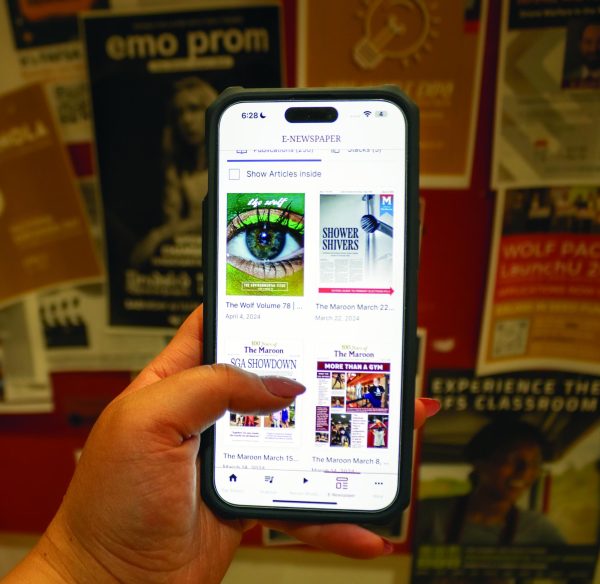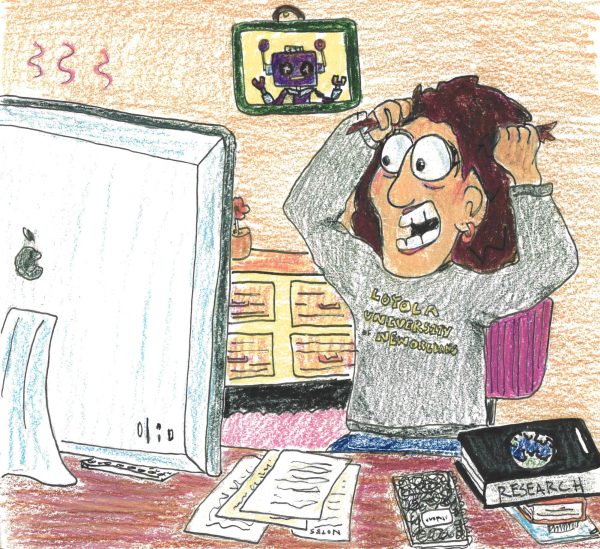Louisiana politicians continually pander to racist voters for support
February 13, 2015

Tony is a political science senior
In 2008, Bobby Jindal was elected Louisiana’s — and the nation’s — first Indian-American governor.
After campaigning against government corruption and in favor of increased transparency of government contracts, he was seen as a breath of fresh air in the after-math of the failed government response to Hurricane Katrina.
He prided himself on being a Rhodes scholar and the work he accomplished as Assistant Secretary of Health and Human Services in George W. Bush’s first term.
As of late, however, Jindal has chosen repeatedly to ignore young voter’s priorities in favor of harsh, anti-Muslim rhetoric.
Jindal seems to have abandoned his inclusive way of politicking, which brought him record numbers of democratic and young-voter support.
His form of campaigning successfully built a bipartisan, multi-generational coalition that was well reported by the New Orleans Advocate and the Times Picayune.
As Jindal nears the end of his final term as governor and contemplates a presidential bid, he faces a significant depression in public support.
His tarnished image, resulting from his cuts in higher education, has drained support from his once-broad coalition of conservative democrats and reformation-minded youth.
Instead of reversing his position or appealing to those skeptical of Islam in other policy areas, Gov. Jindal has taken to cable news networks in the immediate after-math of the Charlie Hebdo attacks to raise national consciousness over nonexistent “no-go zones” in Europe where Western Christians are not allowed in majority Muslim cities.
He cited a report by UK tabloid The Daily Mail that provided no specific evidence and later appeared on CNN to defend his claims but provided no specific examples of cities where Christians were expelled.
Following a mountain of criticism, some from his own party, Jindal has neither recanted nor apologized for his not-so-subtle jab at the greater Muslim community.
Why would Louisiana’s top conservative double down on an accusation that was widely debunked and discredited? What does he have to gain?
The answer is support — a lot of it.
After the fallout of these claims, Jindal’s support has moved from 6 to 10 percent with those who self-identify as “conservative” and “highly likely to vote” in 2016, according to Gallup and Pew polling.
Gov. Jindal has also seen more modest increases in support in the early republican primary states of Iowa and South Carolina following last week’s “no-go zones” crusade.
Just as Jindal doubled down on unpopular higher education reforms following bleeding support from young voters, he has defended his claims that defending the West against sharia law is a top U.S. national security priority.
Based on the amount of positive encouragement following his blatantly false allegations, it’s no wonder why he would continue to defend those remarks.
indal could conceivably move into top-tier status catering to this sub-section of conservative voters.
When House Majority Whip Steve Scalise’s alleged participation in David Duke’s European-American Unity and Rights Organization is taken to account, it seems the highest echelon of Louisiana republican leaders are still indebted to racist voters.
Instead of moderating his views and tone to remake his broader appeal, Gov. Jindal is actively courting low-information voters sympathetic to anti-Muslim rhetoric — alienating young voters in particular who are “much less likely” to support an anti-Muslim candidate, according to Pew and Gallup.
Jindal is prioritizing rhetoric of prejudice and exclusion over the legitimate concerns of most Louisianans, signifying the official start of his campaign for the republican nomination for president.
















